ACC706 Report: Analysis of Blackmores CSR Issue and Recommendations
VerifiedAdded on 2023/01/18
|7
|727
|33
Report
AI Summary
This report analyzes the corporate social responsibility (CSR) issue faced by Blackmores, an Australian health company, focusing on the unethical practice of selling health supplements alongside prescription drugs through pharmacies. The report identifies this as a significant CSR issue, negatively impacting the company's social reputation. It examines the sustainability model of Blackmores and how its actions contradict its CSR policies, particularly in promoting supplements with limited evidence to address side effects of prescribed drugs. The analysis incorporates agency, stakeholder, and legitimacy theories to underscore the need for improved CSR practices, transparency, and accountability. Recommendations include enhancing CSR disclosures at both regulatory and corporate levels, prioritizing consumer protection, implementing robust internal control management, and ensuring compliance with Therapeutic Goods Regulation. The report emphasizes the importance of legitimizing actions and demonstrating the efficacy of supplements in addressing prescription drug side effects, ultimately aiming to rebuild social image and maintain stakeholder trust. The report also references various sources, including academic journals and online resources, to support its analysis and recommendations.
1 out of 7
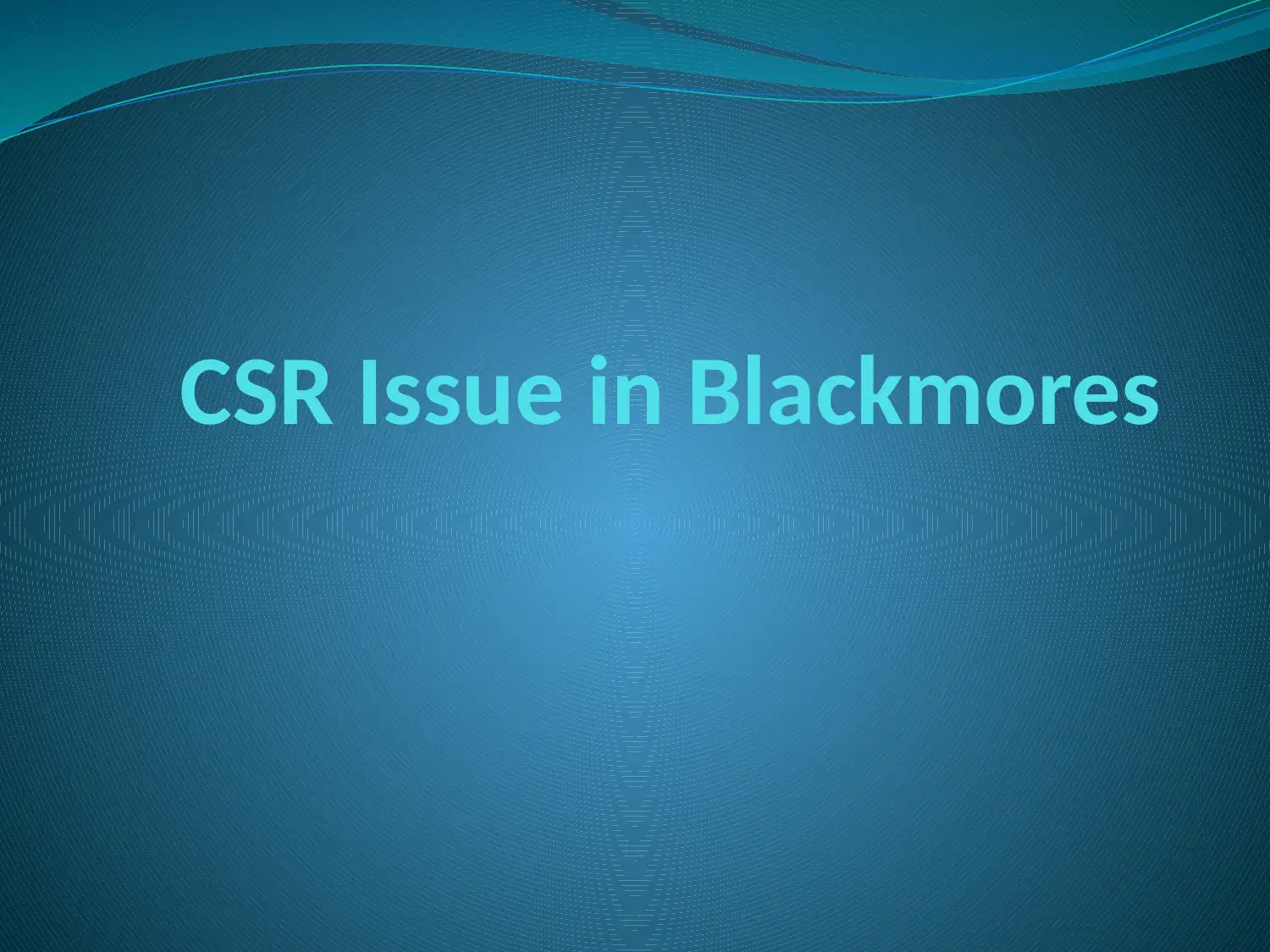
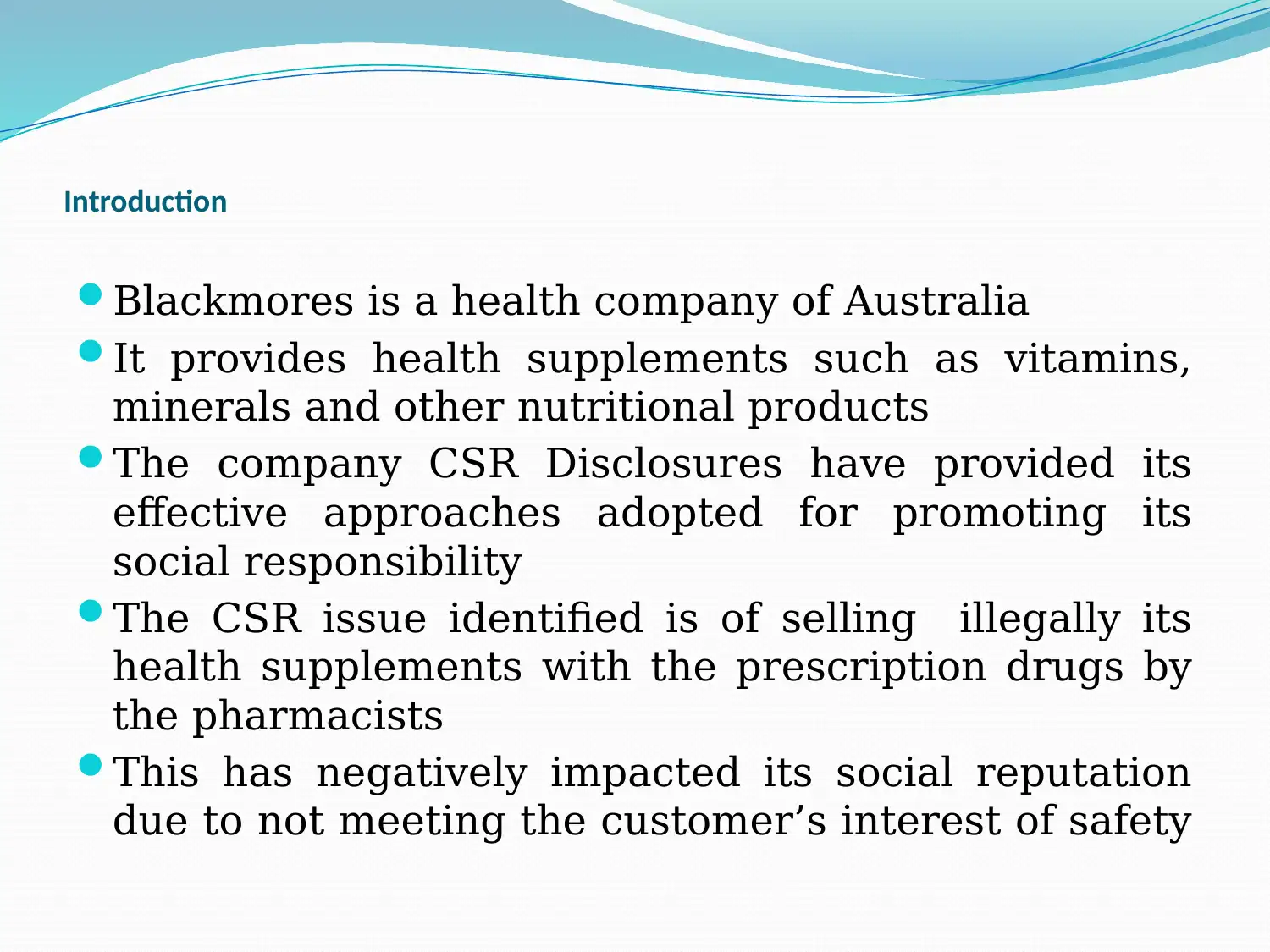
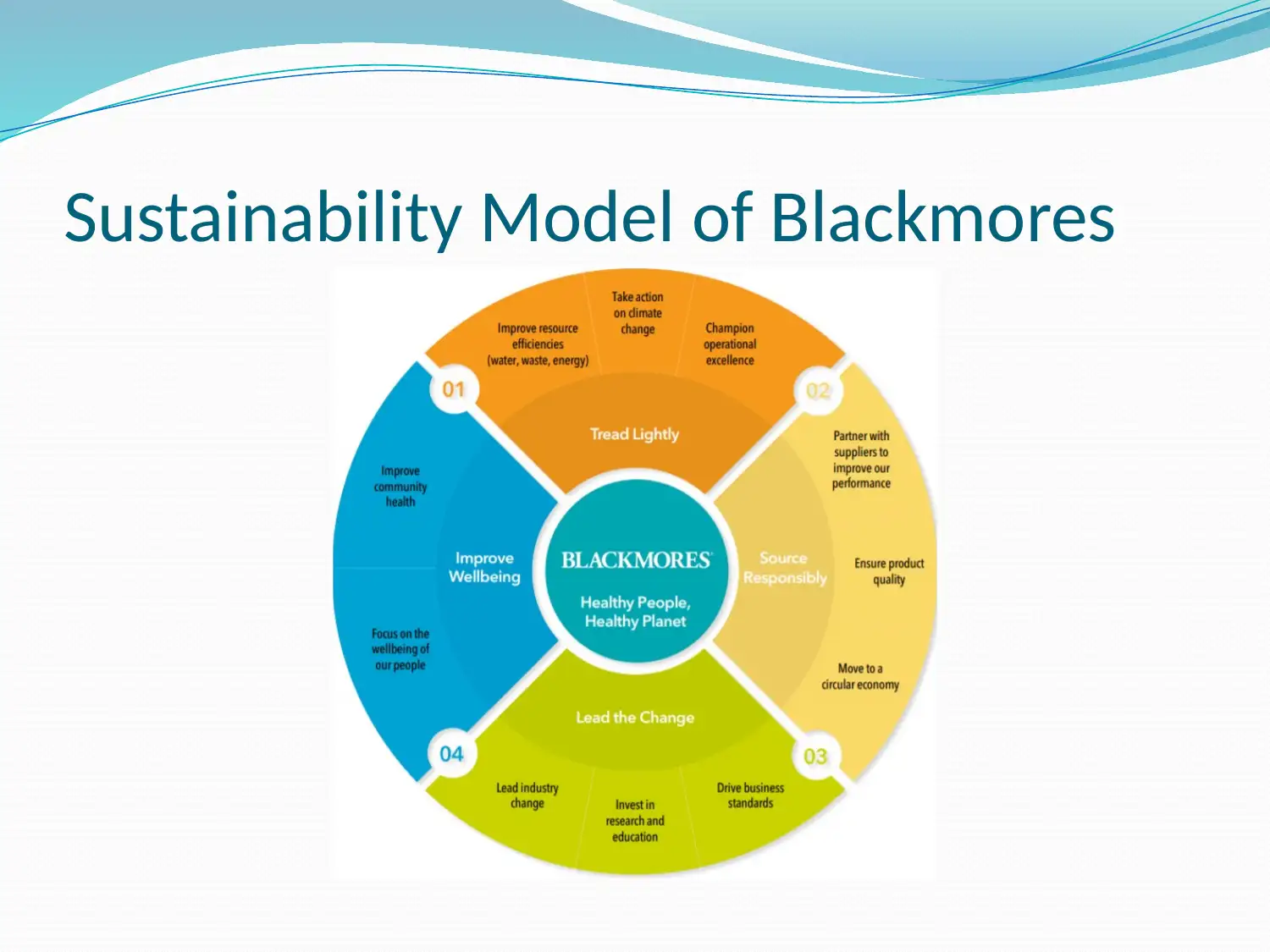

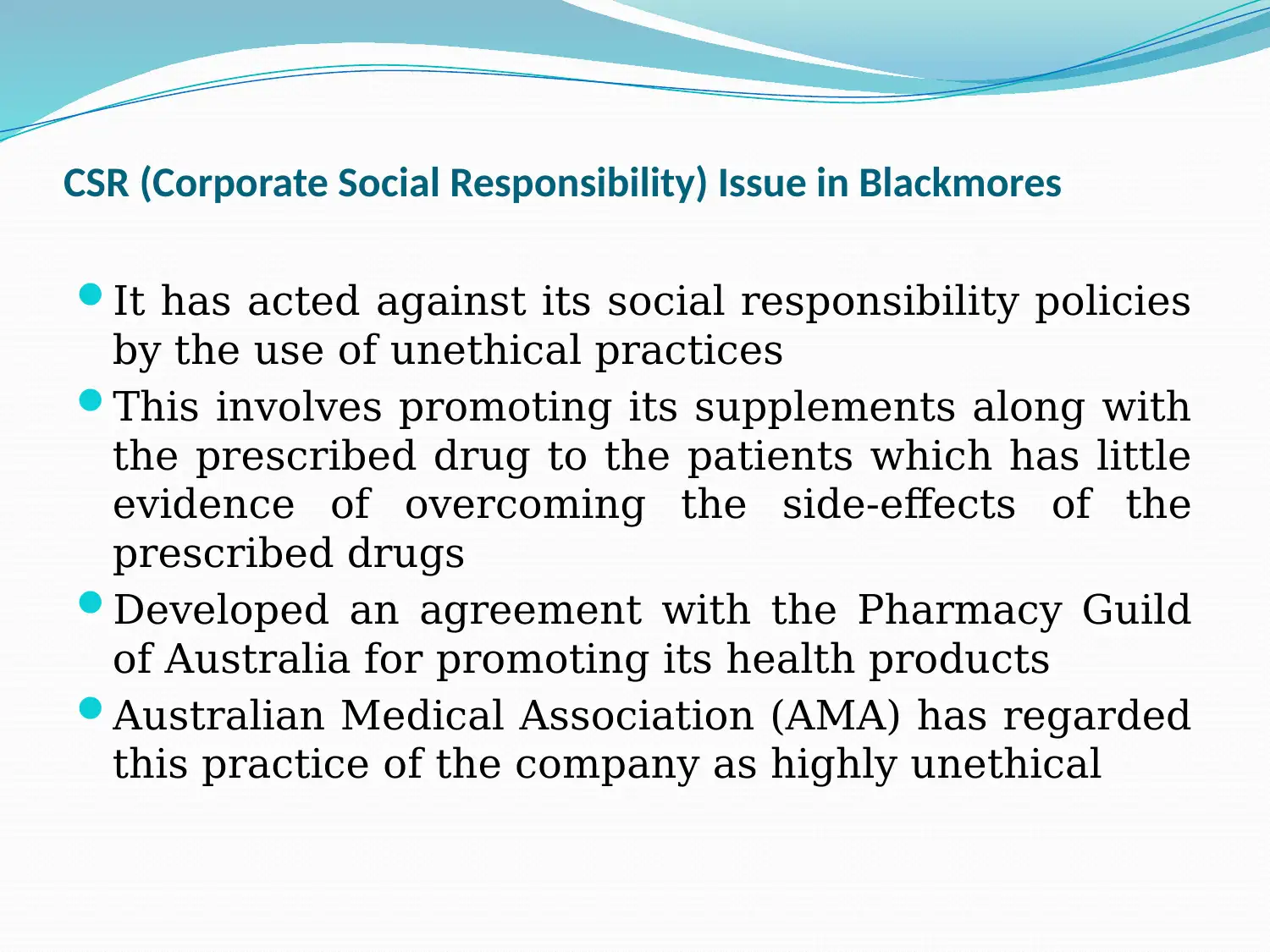
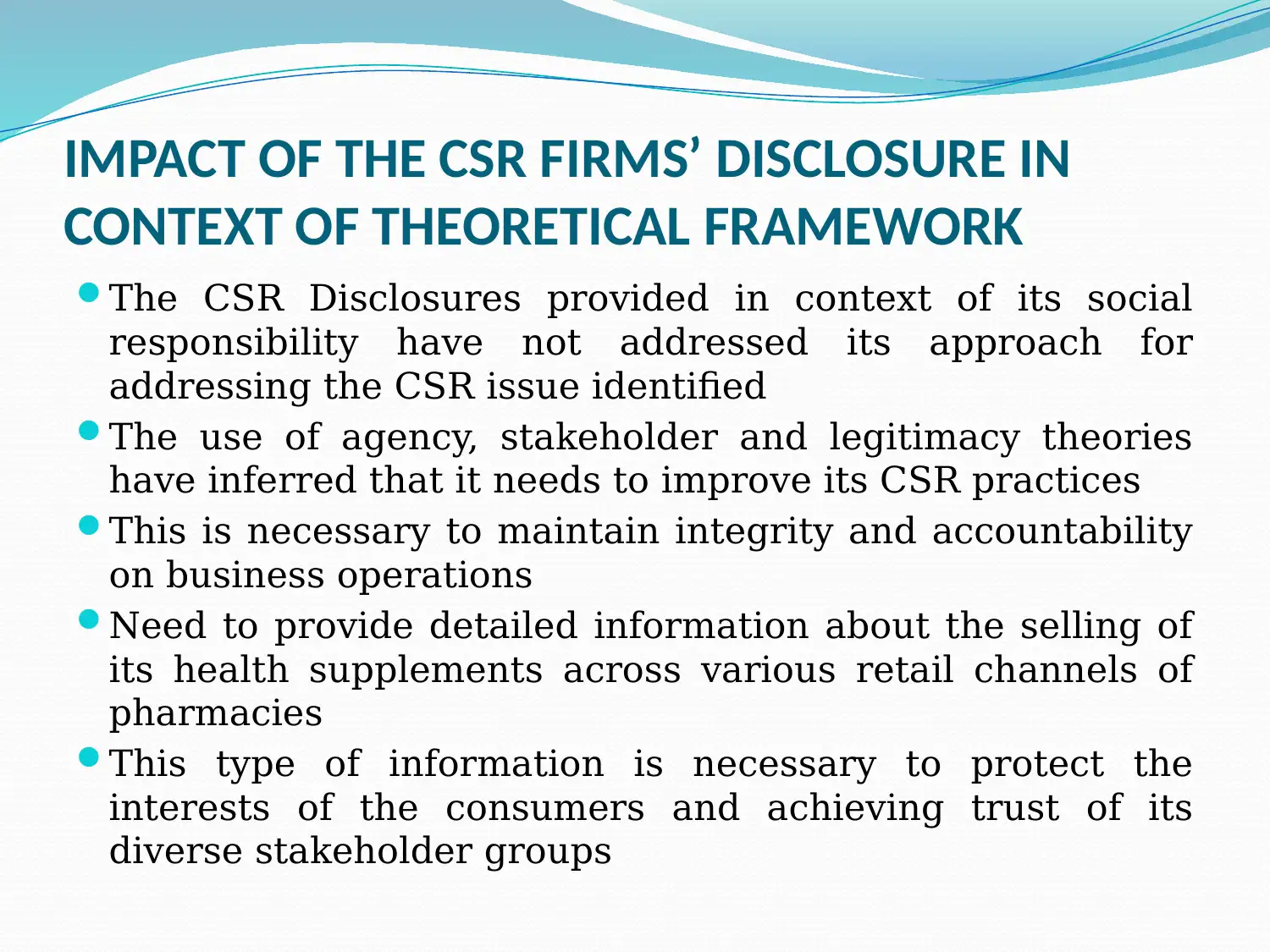
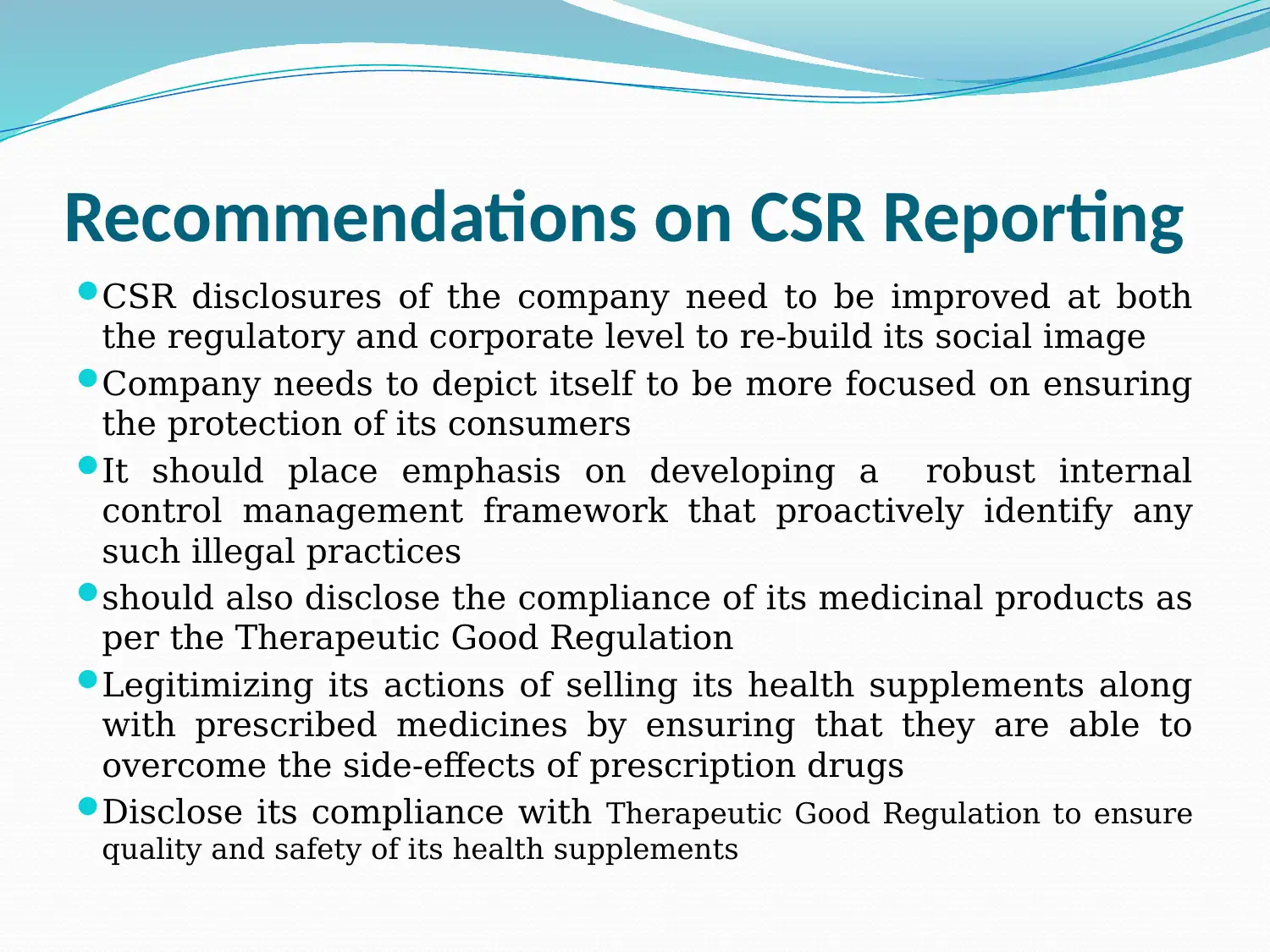
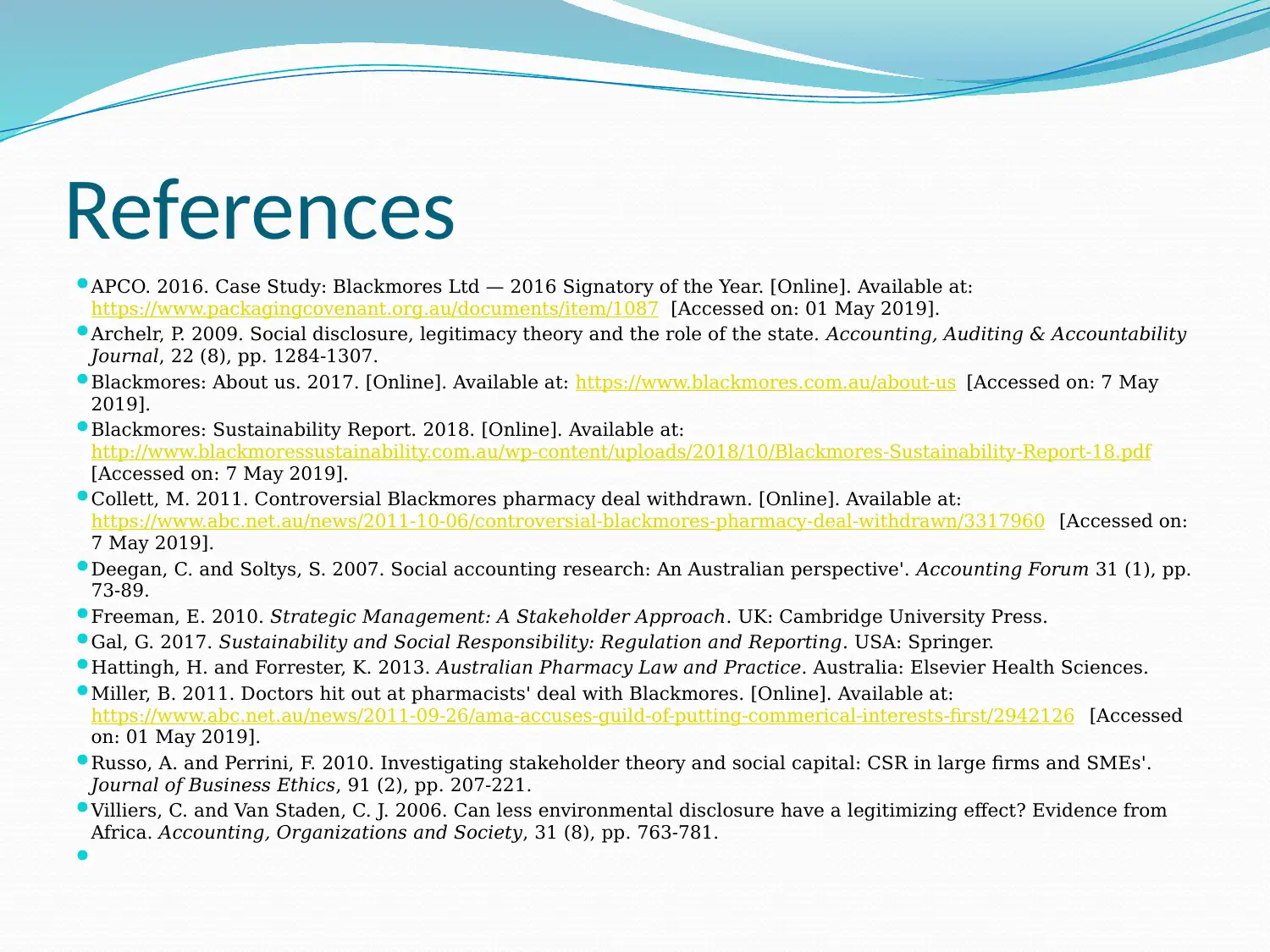



![[object Object]](/_next/static/media/star-bottom.7253800d.svg)